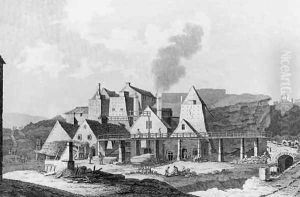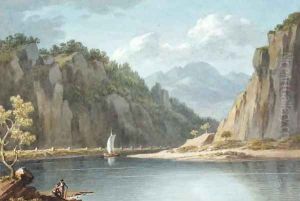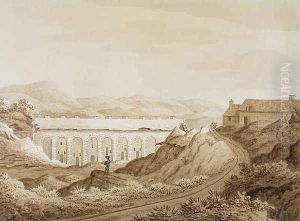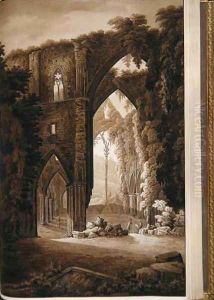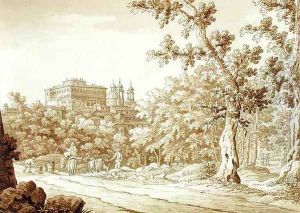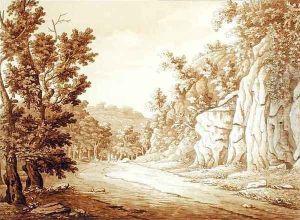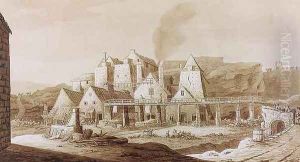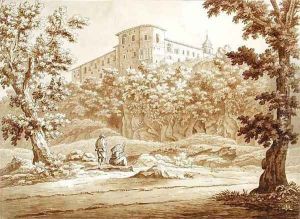Sir Richard Colt Hoare Paintings
Sir Richard Colt Hoare, 2nd Baronet, was an English antiquarian, archaeologist, artist, and writer who made significant contributions to the study of Britain's ancient past. Born on December 9, 1758, into a wealthy banking family, Hoare inherited the Stourhead estate in Wiltshire after the death of his grandfather, Sir Richard Hoare, the founder of Hoare's Bank. He succeeded to the baronetcy in 1785, upon the death of his father, Sir Richard Hoare.
Hoare was educated at home by private tutors and later attended the Grand Tour, which was customary for young men of his social status at the time. During his travels across Europe, he developed a keen interest in antiquities and the classical past, which would shape his future scholarly pursuits.
On returning to England, Hoare settled at the family estate in Stourhead, where he devoted himself to the study of local history and archaeology. He was particularly interested in the ancient history of Wiltshire and became one of the early figures in the development of scientific archaeology in Britain. Hoare is best known for his detailed investigations and surveys of the prehistoric monuments in Wiltshire, including the famous stone circles at Avebury and Stonehenge.
In 1810, Hoare published the first volume of 'The Ancient History of South Wiltshire,' which was part of his larger work, 'The History of Modern Wiltshire.' This influential publication laid the groundwork for future archaeological studies in the region and established Hoare as a pioneer in his field. He was meticulous in his recordings, often including detailed illustrations and maps to accompany his descriptions of archaeological sites.
Hoare's work extended beyond archaeology. He was also an accomplished artist and his estate at Stourhead was renowned for its picturesque landscape and classical architecture, much of which Hoare had a hand in designing. Throughout his life, he was a patron of the arts and a member of various learned societies, including the Society of Antiquaries of London.
Sir Richard Colt Hoare died on May 19, 1838. His legacy lives on through his contributions to the field of antiquarian studies and the rich historical and artistic heritage he preserved at Stourhead. His meticulous approach to archaeology and his efforts to record and understand Britain's ancient monuments were ahead of his time and paved the way for future archaeological practices.
